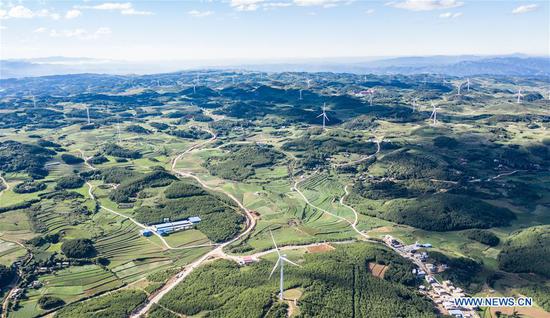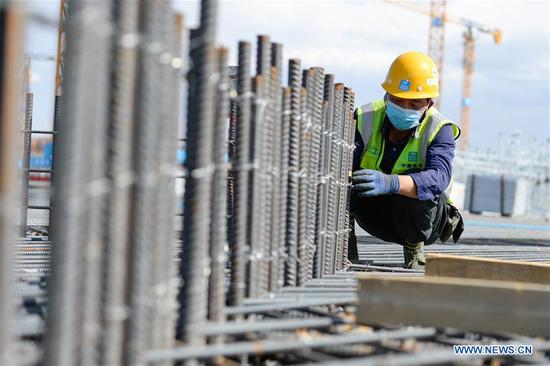China expected to have about 150 million 5G mobile subscribers by the end of this year, as the nation scrambles to accelerate construction of new infrastructure, including 5G base stations, a national legislator and renowned telecom expert said.
Liu Duo, a deputy to the 13th National People's Congress, said despite the impact of the COVID-19 outbreak, China's telecom carriers are working hard to expedite the rollout of 5G.
"5G networks include two parts, namely core network and base stations. Chinese telecom carriers are aiming to upgrade their 5G core network into standalone architecture by the end of this year," said Liu, who is also head of the China Academy of Information and Communications Technology, a government think tank.
By then, the standalone 5G network, which functions better than a non-standalone network, will lay down a sound foundation for the wider application of 5G in a variety of industries, Liu said. Non-standalone networks differ from stand-alone ones as the former still relies on existing 4G infrastructure to realize some of its functions.
As of mid-May, over 200,000 5G base stations have become operational in China, according to the Ministry of Industry and Information Technology, the nation's top industry regulator. By the end of March, China had more than 50 million 5G mobile subscribers.
"Only 20 percent of 5G's applications will be consumer-oriented, and 80 percent of its commercial potential lies in its use in traditional sectors. As a result, the combination of 5G and industrial internet will be of great importance to the nation's industrial upgrade," Liu said.


















































